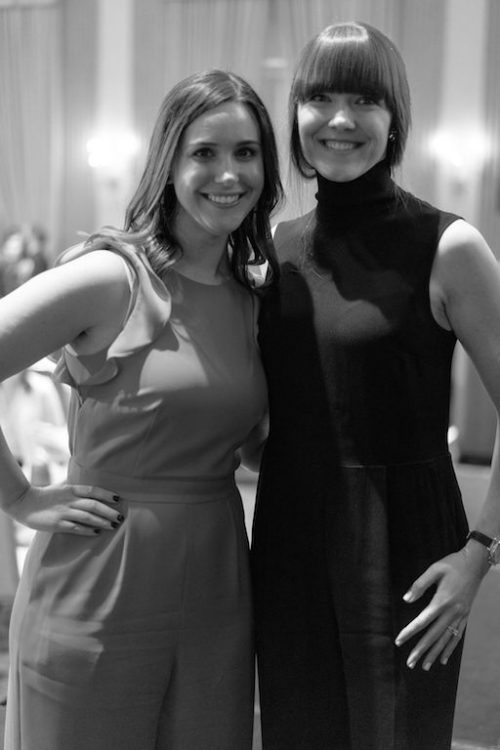
BY JUDY CARMACK BROSS
VOCEL puts into practice our deep belief that building strong foundations for young children sets them up for a lifetime of success. We know that when we invest in young children—and the parents and caregivers who surround them—we can have a profound impact of a child’s academic and life trajectory.
–Kelly Powers, Co-Founder and Executive Director, VOCEL
Nearly 400 guests at a recent luncheon at the Standard Club celebrated the organization that addresses early learning rooted in language, curiosity, and preschool readiness. The luncheon raised almost $250,000 for the VOCEL Child Parent Academy, a 10-month early learning accelerator that serves both children and caregivers in their unique side-by-side model. The community-based program headquartered in Austin now partners with 10 Chicago Public Schools and other organizations in 15 communities.

Kelly Powers addresses the crowd.
Myra Jones-Taylor, Chief Policy Officer of ZERO TO THREE, who delivered the keynote address, has said: “Every baby is born with limitless possibility. It is up to us to eliminate the barriers that prevent them from realizing their full potential later in life.”

Powers and Jesse Ilhardt.
Speaking afterwards with Kelly Powers, who began working on her dream in 2012 with co-founder Jesse Ilhardt, now managing director of programs, and Board President Barbara Koren, we learned more about VOCEL.
Koren, President of the Edwards Consulting Group and also former Co-Chair of Facets, says that the VOCEL motto might be “the earlier the better.” She shared, “There is that longstanding misconception that language is ‘mother’s work.’ While it is so important to empower loving caregivers, it does take a village. We keep things fresh and innovative and are always looking for new ways to improve early learning. VOCEL has developed its own curriculum which is very data driven, embedded in science and research. We see very positive results. I feel like a proud parent, we are growing by leaps and bounds.”

Barbara Koren and Kelly Powers.
Powers pointed out: “By the age of three, nearly 80 percent of our brain is fully developed. The number of words a child is exposed to between birth and age three is significantly correlated to the child’s later academic success. Statistics have shown that by the age of three a child living in poverty hears 30 million fewer words than their high-income peers.
“Language also helps children learn to self regulate, a necessary skill to becoming successful adults,” she continued. “We don’t tend to think of little kids as leaders, but you can develop skills that, in their responses and choices, can show great leadership. I have seen such poignant examples where very little children show empathy in comforting a friend who is sad. We hopefully are showing children how to walk in another person’s shoes, which in turn will lead to a more empathic society.”


She shared that recently, they worked with a group of four-year-olds who had all crowded into the area where the blocks were kept, all wanting to play. They paused, taking the time to work through the problem, talking through a way to figure out a way for them all to play there. They came up with a way of taking turns, all on their own.


Powers shared her dream: “We envision a world where all young children have access to the best in education and parents are supported as children’s first and best teachers. We champion childhoods that are rich in the joys of discovery and connection.”
For more information about VOCEL, visit vocel.org.







